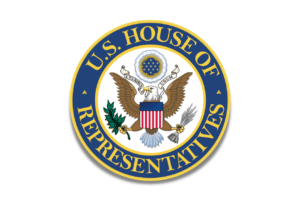Senate Finance Committee Chairman Max Baucus today introduced a new version of tax extenders legislation (HR 4213). The Job Creation and Tax Cut Act of 2010 includes following provisions from H.R. 4213, the American Jobs and Closing Tax Loopholes Act (also known as the tax extenders bill), including:
Sec. 101. Extension of Build America Bonds.
This provision extends the Build America Bond Program through January 1, 2013. The Build America Bonds program, created in last year’s economic stimulus law, provides a federal government subsidy for interest on certain municipal bonds, which are taxable and carry a higher interest rate than typical tax-exempt bonds. It is currently slated to expire at the end of 2010. This section also would reduce the amount of interest subsidy over time. In the case of a qualified bond issued during calendar year:
- 2009 or 2010: 35 percent
- 2011: 32 percent
Please note that previous versions of HR 4213 extended the BAB program through 2012. The reduction of the extension is being proposed to reduce the overall extenders package by $1.3 billion over ten years.
Sec. 105. Allowance of new markets tax credit against alternative minimum tax.
This section would permit the New Markets Tax Credit to offset against the alternative minimum tax for QEI’s made after March 15, 2010. Similar exemptions are currently available for the low-income housing tax credit and historic rehabilitation tax credit.
Sec. 231. Election for direct payment of low-income housing credit for 2010.
Extends the Section 1602/Exchange program for low-income housing tax credits through 2010.
Sec. 232. Low-income housing grant election.
This new provision would allow GO Zone, Midwest and Hurricane Ike disaster LIHTCs to be eligible to be exchanged through the Section 1602/Exchange program.
Sec. 243. New markets tax credit.
Extends the New Markets Tax Credit at a level of $5 billion through 2010.
Sec. 295. Increase in rehabilitation credit.
Extends the increase in the historic rehabilitation tax credit for projects in the GO Zone through December 31, 2010.
Sec. 297. Extension of low-income housing credit rules for buildings in GO zones.
Extends by two years the placed-in-service date for Gulf Opportunity (GO) Zone LIHTCs
Sec. 606. Housing Trust Fund.
Funds the National Housing Trust Fund at $1 billion in capital funds and $65 million for project-based vouchers.
Taxation of Carried Interest
The bill would prevent investment fund managers (and many real developers) from paying taxes entirely at capital gains rates on income received as carried interest in an investment fund. To the extent that carried interest reflects a return on invested capital, the bill would continue to tax carried interest at capital gain tax rates. However, to the extent that carried interest does not reflect a return on invested capital, this amendment would require investment fund managers to treat seventy-five percent (75%) of the remaining carried interest as ordinary income beginning on January 1, 2011. The amount that will be treated as ordinary income is reduced to fifty percent (50%) for carried interest that does not reflect a return on invested capital but which is attributable to the sale of assets which are held for 5 or more years. This amendment provides that the lower recharacterization percentage also applies to the gain or loss attributable to the underlying assets held for 5 or more years when a partnership interest is sold as well as to gain attributable to section 197 intangibles of a partnership whose principal activity is providing specific investment management services with respect to the assets of the partnership when the partnership interest has been held for 5 or more years. This amendment also provides that, on selling an interest in any publicly traded partnership, a person who is not an investment service provider will be exempt from the rule that recharacterizes as ordinary income under Internal Revenue Code section 751(a) that portion of the gain or loss attributable to an investment services partnership interest.
Prospects for the bills passage during this session of Congress are uncertain. Upon the bill’s introduction Sen. Baucus requested unanimous consent, which would have expedited its consideration, but the request was rejected. This means the bill will be subject to consideration on the Senate floor, leaving unclear its chances of passage before the next congressional recess. If the measure does pass the Senate it would still need to be reconsidered in the House of Representatives.
NH&RA will be covering in detail the proposed extenders bill, as well as other key legislative and policy developments at the 2010 Fall Developers Forum, October 18-19 in Boston.

